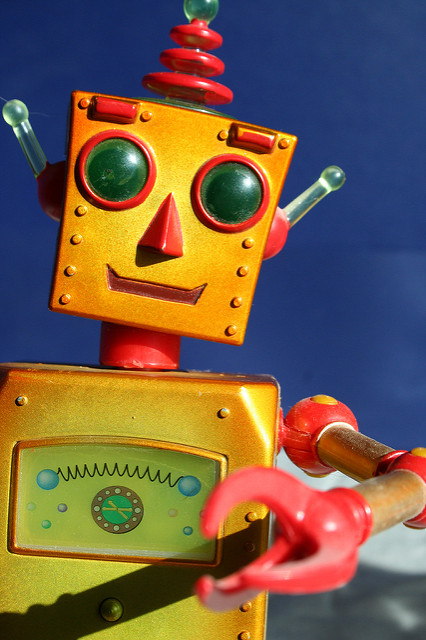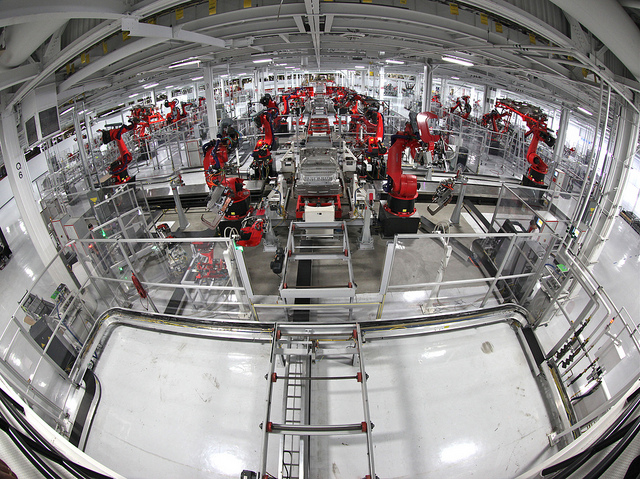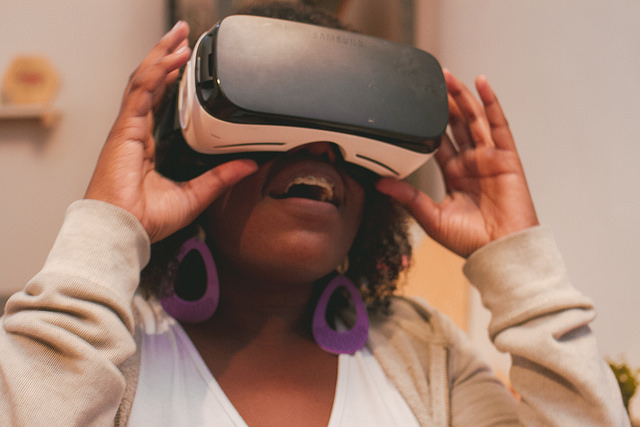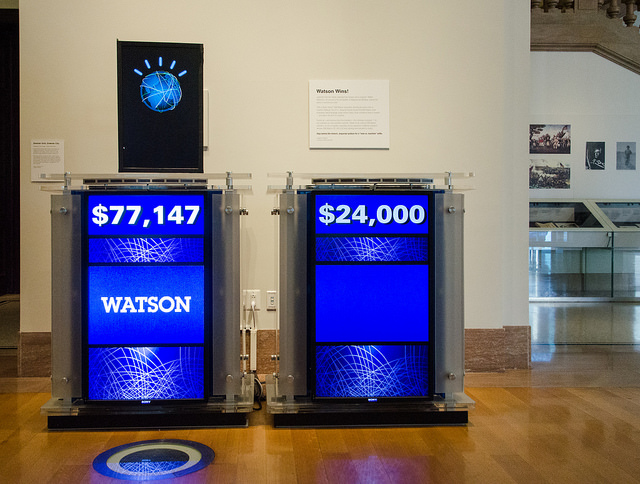Will Technology Replace Skilled Labor? Or Redefine It?
There's this moment in the first season of The Jetsons, the 1962 animated sitcom about an American family living in the year 2063: George Jetson, the patriarch, complains to his wife Jane about his job at Spacely's Space Sprockets, saying, "Yesterday I worked two full hours!" Cue the laugh track.
 Robin Zebrowski - flickr.com
Robin Zebrowski - flickr.com
For centuries, humans have imagined that technology would someday eliminate the need for work. And indeed, throughout history, emergent technologies have—while not eliminating it—changed the nature of work. These advancements have been both exciting and game-changing. Farming technology and the domestication of animals brought on the Agricultural Revolution, allowing nomadic human beings to settle together in cities and stop working as hunters and gatherers. Mechanization brought thousands of workers into factories for the Industrial Revolution, and lately, the advent of automation has cast workers back out of those factories, giving rise to the knowledge economy.
 Steve Jurvetson - flickr.com
Steve Jurvetson - flickr.com
So while technology hasn't yet given rise to the two-hour workday of The Jetsons, its impact on the nature of work cannot be overstated. The technologies of the near future have the potential to dramatically change the kinds of work we do, and the way we do it. Here's a look at how some new technologies are changing the face of work as we know it.
Virtual Reality
In our modern, globalized economy, large companies increasingly find their people working from opposite sides of the world. For transnational companies with numerous offices, getting people together to communicate effectively is a real challenge. While nothing beats an old-fashioned, face-to-face meeting, the wasted hours and high cost of airplane travel make the old-school boardroom an ineffective tool for effective communication. And with our uncertain climate future, limiting jet travel is key.
 Olabi Makerspace - flickr.com
Olabi Makerspace - flickr.com
Video chatting services have already evolved the meeting as we know it, but the future is looking even more fascinating. New virtual reality technologies are re-imagining the conference room. By allowing people to physically interact with one another—or more accurately one another's avatars—virtual reality offers the promise of a new, virtual, conference room. People in this virtual conference room could one day find themselves pointing to virtual charts and posters, passing virtual memos, and even shaking virtual hands. And as the lines between the real and the virtual become increasingly blurry, the need for expensive, eco-unfriendly travel will be greatly reduced.
Artificial Intelligence
The potential for AI to change work as we know it is both inspiring and unsettling. While artificial intelligence is often cited as highly disruptive for blue-collar jobs like manufacturing or trucking, it has the potential to rattle white collar employment, too. According to CNBC, lawyers could soon find their jobs being automated by increasingly capable AI. When we think of lawyers, we often think of trial attorneys cross-examining witnesses in court, or prosecutors bringing cases against criminals—the kinds of things that, for ethical reasons, ought to be done by humans. But there is an opportunity to seize the upside of disruption for organizations that create a culture of innovation. For example, EY tax professional Danny Deng created a report-generating tool for the Affordable Care Act (ACA) practice that has saved clients and EY considerable time and money. Using self-taught skills and managing three contractors, Danny developed COMPASS VIEW, saving an estimated $250,000 to $500,000 that it would have cost to have an external supplier build it. COMPASS VIEW standardizes client reports, and the ACA practice estimates that its functionality will save around 150 staff hours and 60 manager hours per client. While some legal sector jobs are ripe for disruption, the future is bright for other industries.
 edwardhblake - flickr.com
edwardhblake - flickr.com
And in some cases, that innovation is already happening. The future could see virtual assistants, self-driving taxis and manufacturing robots that can build more robots. Companies like Ernst & Young have made a commitment to embed digital transformation and innovation opportunities across all service lines and sectors including growing its Global Innovation group based in Silicon Valley, which champions innovation across all EY businesses and initiates new innovative ventures. EY is now using more than 1,100 robots to support their businesses and clients. But all of this innovation can feel unsettling to workers: according to a 2016 report released by Citibank in conjunction with Oxford, 47 percent of US jobs are at risk of being automated, making it more important than ever for companies to prepare their workforces and their businesses for the future of work.
The Evolution of the Office
 side guacamole - flickr.com
side guacamole - flickr.com
With the rise of effective and simple methods of communication has also come the increasingly common practice of "working from home." According to the US Census Bureau, the number of at-home workers has increased by 4.2 million between 1997 and 2010. This drastic shift is only bound to continue as methods of communication become cheaper, easier and more effective. And the shift away from the office is already changing our urban landscapes—coffee shops are filled to the brim with workers on laptops, and co-working spaces are popping up in cities across America.
What does the future of work hold?
Work has certainly changed as a result of technology, and while we aren't living the utopian work-free life of The Jetsons just yet, we can certainly try to be as prepared as possible. Learn more about how large organizations like EY are dealing with the future of work.


